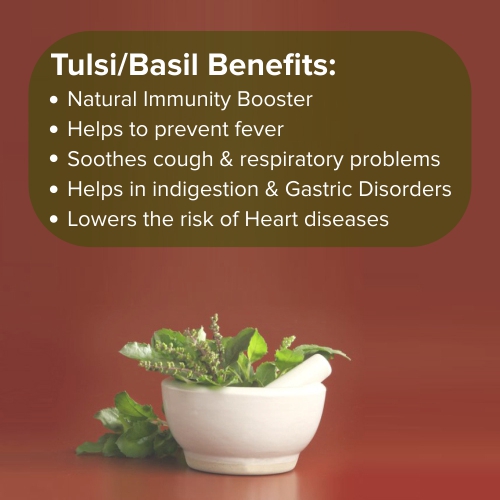tulsi (Ocimum tenuiflorum) Benefits and Uses
tulsi/ Botanical Name : Ocimum tenuiflorum
Family: Lamiaceae
Order: Lamiales
Rank: Species
Higher classification: Basil
Kingdom: Plantae
Tulsi: Benefits and Uses

Ayurveda has been very
supportive in our life since ancient times and its effect has not diminished
with the changing times. In today's era, Ayurveda is recognized as much as it
was before. Among the various herbs of Ayurveda, the herb Tulsi has also been
included which is considered to be quite sacred compared to other herbs. We can
use Tulsi in various ways and its benefits are also considered quite. We can
use the herb named Tulsi along with other adaptogenic herbs to counter the
stress arising in our body. Today, Tulsi has been given the most appropriate
status in Ayurvedic medicine in most countries and most people have started
applying for this medicine in their homes. Tulsi is widely used in Ayurvedic
herbal teas and other mixtures.
Has its benefits.
Tulsi is used to cure various
diseases and their symptoms since ancient times. There are various benefits
of using Tulsi as it is considered highly pure and fruitful compared
to all herbs and some people are also called the queen of herbs. So let's have
a look at the benefits from this.
1. The first Tulsi
benefit is that people who have asthma, colds, cough, flu, sore
throat and any type of respiratory diseases or have symptoms, then this
herb can give you relief.
2. Regular basil intake works to
control cholesterol levels and blood pressure. Doing this reduces the risk
of stroke, heart attack and other related diseases. People who have an
excessive headache can also be treated with this herb. And the problem of
sleep can be solved by its regular intake.
3. One of the many benefits of
tulsi is that it is used to treat indigestion intestinal parasites, ulcer
vomiting, menstrual cramps. Basil's help can be taken to prevent and
reduce the pain in the kidneys whose stones. Use tulsi tea to relieve
joint pain.
4. Most people have diabetes
problem, so if you want to resort to Ayurvedic herbs then using Tulsi is
an appropriate option for this. Because it helps maintain blood sugar
levels and can promote efficient processing of carbohydrates and fats. One
of the benefits of using tulsi is that it eliminates
harmful bacteria in the mouth, which clears teeth and breathes.
How to use it.
After reading the above
benefits, the next question now arises is that of Tulsi uses. That
is, how should we use tulsi. Tulsi is considered to be an adaptogenic herb in
Ayurvedic herbs that we use to reduce stress and increase energy. Use of tulsi
reduces asthma attacks from becoming more severe and may promote
detoxification. If we talk about herbal products, the contribution of tulsi is
found in all herbal substances. Many of our politicians also use Tulsi to
improve their health and also consider it as a holy medicine. Of all the tulsi
uses, it is highly used to make herbal tea or we can also use dry tulsi
powder by using it. There are three types of Tulsi commonly known as Rama
Tulsi, Krishna Tulsi and Vanna Tulsi. Now if we close this category according
to its effect, then Krishna Tulsi is considered more effective for health than
other Tulsi. After Krishna Tulsi, Rama Tulsi and then finally Tulsi are
included because there is less power in Tulsi but sometimes we can mix it with
other types of Tulsi too for pleasing taste.






Comments
Post a Comment